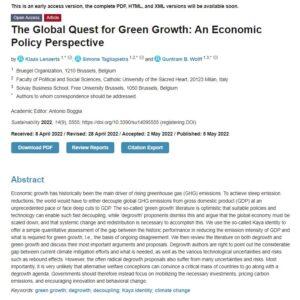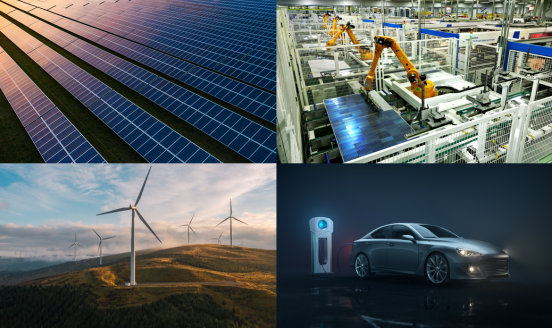The Global Quest for Green Growth: An Economic Policy Perspective
A review on green growth and degrowth arguments.
Economic growth has historically been the main driver of rising greenhouse gas (GHG) emissions. To achieve steep emission reductions, the world would have to either decouple global GHG emissions from gross domestic product (GDP) at an unprecedented pace or face deep cuts to GDP. The so-called ‘green growth’ literature is optimistic that suitable policies and technology can enable such fast decoupling, while ‘degrowth’ proponents dismiss this and argue that the global economy must be scaled down, and that systemic change and redistribution is necessary to accomplish this. We use the so-called Kaya identity to offer a simple quantitative assessment of the gap between the historic performance in reducing the emission intensity of GDP and what is required for green growth, i.e., the basis of ongoing disagreement. We then review the literature on both degrowth and green growth and discuss their most important arguments and proposals. Degrowth authors are right to point out the considerable gap between current climate mitigation efforts and what is needed, as well as the various technological uncertainties and risks such as rebound effects. However, the often radical degrowth proposals also suffer from many uncertainties and risks. Most importantly, it is very unlikely that alternative welfare conceptions can convince a critical mass of countries to go along with a degrowth agenda. Governments should therefore instead focus on mobilizing the necessary investments, pricing carbon emissions, and encouraging innovation and behavioral change.




